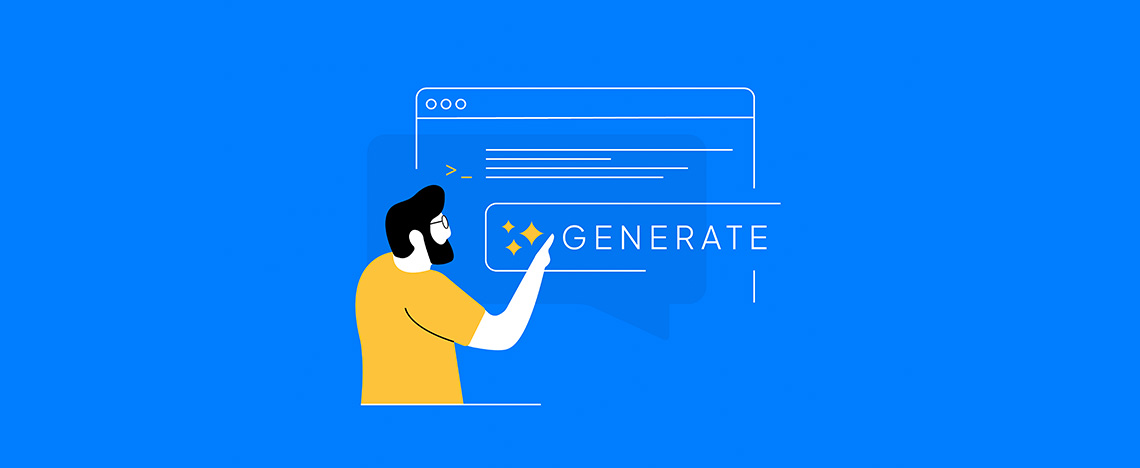
How AI-Powered SEO Is Actually Generating New Opportunities

There’s no denying that AI is changing the way we approach SEO. But it might not be in all the ways you’d expect. While AI is rewriting the playbook of what it takes for content to rank and be found, it’s simultaneously opening up entirely new doors to drive growth and elevate your SEO efforts.
With AI-powered SEO tools, growth-minded teams can execute on strategies that are as agile as they are impactful. As a partner, our goal is to help clients tap into these new opportunities so you can increase visibility, capture more real estate in search and drive referral traffic across various platforms.
Rethinking SEO Channels: How AI Platforms Are Opening New Doors
AI is changing what it means to “show up” in search. Instead of relying solely on search engine results pages, there’s a push toward expanding one’s reach into AI-powered platforms where new forms of organic visibility are gaining traction.
ChatGPT
Custom ChatGPTs are quickly becoming strategic SEO and engagement assets. Think of them as interactive microsites that can position a brand as a subject matter authority, answer FAQs in real time and guide users toward relevant resources.
These GPTs can serve as:
- Shareable mini-tools that act as “lead magnets”
- Indexable assets that can rank directly in Google
- GPT Store listings that generate brand awareness and traffic
- Conversion channels via embedded links triggered by user prompts
Example: A company in the industrial manufacturing space creates a Custom GPT titled “Plastic Welding Equipment Guide.” The GPT is optimized with a keyword-rich description and includes prompts like “What’s the best welding machine for PVC?” or “How do I troubleshoot sealing issues?” The GPT is programmed to suggest specific product pages or blog content when users mention key phrases, creating a new pathway for lead generation and conversions outside of traditional web channels.
Not only does this GPT help users interact with the brand in a more personalized way, but it also provides structured AI-generated content that can inform the AI models powering broader search results.
Perplexity AI
Perplexity AI is another high-upside, low-effort tool where brands can publish content that appears in AI-generated search summaries. These articles often show up when users ask complex, research-based questions. While they may not rank in traditional SERPs, they’re increasingly showing up in generative answers and knowledge graphs.
Example: A SaaS company creates a page on Perplexity AI titled “What is CMMS software and how does it streamline maintenance?” The AI auto-generates a comprehensive response based on the company’s existing content and publicly available data. Without much customization, this page starts appearing when users ask questions like “Best CMMS tools for senior care facilities” or “How to reduce maintenance costs with software.”
By regularly publishing helpful, brand-aligned content to Perplexity, the company earns passive referral traffic and contributes to the AI’s training data—enhancing its chances of appearing in summarized answers across search engines and chatbots.
Leveraging AI Tools to Support SEO-Driven Content Creation
As brands branch into custom ChatGPTs and Perplexity AI, they're also finding new ways to bring speed, scale and precision to their more traditional content efforts.
Prompt Engineering for Smarter Content Creation
SEO teams are now building libraries of prompts that serve as the foundation for ideation and execution. Rather than starting from scratch each time, they can use AI to quickly generate SEO-optimized content for page titles, meta descriptions and structured FAQs.
For instance, a team creating a landing page for a cybersecurity company might use a prompt like, “Write five headline options for a CISO evaluating enterprise-level threat detection tools.” In seconds, they have a batch of relevant, persona-driven titles to choose from. Another prompt might focus on generating meta descriptions that hit specific character limits and weave in primary and secondary keywords. AI handles the volume, while human editors refine the messaging to fit the brand's tone and intent.
Scaling Repurposed Content With AI
Repurposing content has always been a best practice; AI is making it scalable.
Consider the case where a team hosts a webinar on supply chain automation. Turning that into blog content could take days. With AI, they can transcribe the session, summarize key takeaways and generate a multi-part blog series in a fraction of the time.
Each blog post can be further broken down into SEO-friendly snippets for social media or short-form videos. This approach supports more consistent publishing, boosts organic traffic and strengthens a brand’s visibility in search engine rankings. AI even allows them to adjust the tone based on the audience—for example, a more technical voice for engineers, and a higher-level tone for executives.
Keyword Research at Scale
Instead of manually mining data from SEO tools, marketers can now use AI to uncover long-tail keyword opportunities that align with specific personas and funnel stages.
Consider a B2B SaaS company exploring content ideas for their fleet management software. With an AI-powered keyword tool, they might input a topic like “vehicle maintenance tracking” and instantly receive clusters of keyword suggestions tailored to logistics managers, fleet coordinators and compliance officers. From there, AI can help group these terms into top-of-funnel, mid-funnel and bottom-funnel categories that feed SEO efforts, inform content optimization and improve targeting with relevant keywords.
Enhancing Conversion-Focused SEO Through Smarter Content
Beyond just creating content, AI is helping marketers optimize it for outcomes. That starts with understanding where users are in their journey—and coming up with content that actively moves them closer to a decision.
Take the example of a manufacturer specializing in industrial connectors. Their team uses AI to develop persona-specific landing pages for three distinct buyer types: electrical engineers focused on performance specs, purchasing agents concerned with availability and lead times and OEM decision-makers evaluating vendor reliability. Each page is built from AI-assisted outlines tailored to that audience’s top priorities.
AI also supports the creation of multiple call-to-action variants. One might emphasize bulk order discounts, another same-day shipping and a third technical support for custom builds. These variations are tested across channels to see which resonates.
How Kuno Creative Is Leveraging AI for Smarter SEO Strategies
At Kuno Creative, AI-powered SEO tools are one part of a bigger equation. What truly sets us apart is our talented team who brings creativity, curiosity and experience to every project. We use AI as a strategic ally to enhance our thinking and streamline how we ideate, create and optimize across the content lifecycle—but it’s our people who turn those tools into high-impact strategies that move the needle.
Whether it’s building reusable prompt libraries, testing keyword clusters with semantic analysis tools or experimenting with platforms, we’re always refining our methods to stay ahead of search behavior. This approach allows us to deliver consistent, high-impact strategies that increase organic traffic, improve rankings in search engine algorithms and create sustainable momentum with every piece of SEO-optimized content we produce.
If you’re ready to explore how AI can elevate your SEO strategy, get in touch with us. We’ll help you show up where it matters most and connect with the right audiences at the right time.





